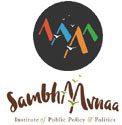
Development Financing in India
Understanding Trends, Implications and Accountability Mechanisms
Organised by Centre for Financial Accountability
at Sambhaavnaa Institute
6th to 9th June 2017
Background:
India is the largest recipient of funds from the World Bank group (IBRD, IDA) loan since 1945 to till 2015 according to its lending annual report 2015 amounting INR: 6,77,841 cr, since 1986 ADB has given INR: 2,39,004cr loan to India till June 2016. Apart from multilateral financial institutions investment, the bilateral institutions like US Exim Bank, Chinese Banks, Korea Exim Bank, JBIC or JICA etc. investment nowadays is rapidly increasing in India. According to the department of economic affairs of the government of India, the bilateral lending stands at more than an INR 4 lakh cr.
The Indian government, for past few decades has stressed the need for large infrastructural projects for the country’s development and these projects are being seen in concurrence with India’s GDP growth. These large infrastructural projects mainly include power projects, dams, highways, ports, urban projects, industrial zones/corridors, smart cities and other mega projects. These need massive infusion of capital from government; domestic banks and financial institutions; multilateral agencies such as World Bank group – IFC, IBRD, IDA and MIGA; regional formations like ADB, AIIB, NDB; and other development financial institutions – national and international both. While the earlier preferred and tried out format was the PPP (Public Private Partnership), it has evolved since then a great deal and is constantly changing, requiring financial reforms, often beneficial to private capital and enterprise. The aim of financial institutions is to influence and make changes in policies to open the countries to international investment. Therefore, understanding the political economy of these institutions is urgent and important.
So what have been the trends in development financing in India in the past few years? What has been the role of IFIs and increasingly National Financial Institutions like LIC for instance in large development projects? How have these determined the trajectory of the economy? What has been the impact of these projects on the people and environment and what have been the diligence processes and safeguard policies set up by the financial institutions in these projects?
Experience shows that the safeguard policies of IFIs do not provide a safety net to people from displacements, loss of livelihood, and protection of their rights. In such a scenario what are the accountability mechanisms that can be accessed by social organisations and communities to demand justice? People’s organisations, in the past, in cases like Sardar Sarovar and Maheshwar dams on river Narmada in 90s, and in recent times in case of POSCO steel plant and Vedanta mining in Orissa have brought to bear their issues with the financial institutions investing in these projects. So there is also a need to understand the possibility of raising issues of social, economic and environmental justice, by monitoring financial institutions and their functioning
About the Workshop:
The three day workshop will focus on developing clarity and building understanding on:
-
the multiple dimensions of International financial institutions and their operations in India.
-
national banking and non-banking institutions, external debt status, fiscal responsibility, fiscal deficits and NPAs and also climate finance.
-
intervening and monitoring various aspects of international development finance and other financial institutions
-
how to use the limited space available to make these financial institutions accountable and transparent. (Civil society perspective, struggles against IFIs and space for raising justice and rights issues)
Who is the workshop for:
Researchers, journalists, activists and students
Methodology: The methodology of workshop will be participatory in which experts will share their analysis through presentations , lecture and discussion with maximum participation through group discussions, Q&A and relating of personal experiences. A resource kit will be provided to every participant before the workshop, which will cover different aspects related to development finance.
Language: The resource kit would be in English. The workshop would be in both Hindi and English.
Resource persons: Leo Saldhana, Environment Support Group , Himanshu Damle, Public Finance Public Accountability Collective, Madhuresh Kumar, NAPM, Joe Athialy, CFA
Dates: 6th June 2017 10:00 AM to to 9th June 2017 5:00 PM.
Venue: Sambhaavnaa Institute, Palampur, Himachal Pradesh
Workshop Contribution Amount: We hope that participants would contribute an amount of Rs. 2500 for 4 days/- towards workshop expenses, inclusive of all onsite workshop costs: boarding, lodging, and all the materials used in the workshop. However, for those who cannot afford this amount please feel free to choose the partial contribution option in the application form.
For more information: Please email programs@sambhaavnaa.org or call 889 422 7954 for any queries
Fill the application form here:
